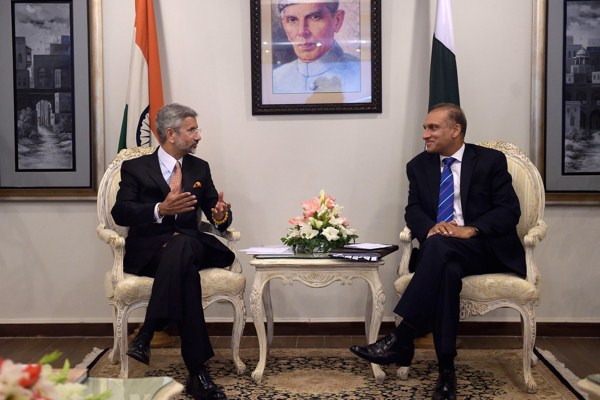Earlier this month, Indian Foreign Secretary Subrahmanyam Jaishankar went on a whirlwind tour of all seven nations of the South Asian Association for Regional Cooperation (SAARC). The objective was to discuss the implementation of reforms, ranging from developing infrastructure to combating terrorism and improving governance, which member states agreed to during last year’s SAARC summit in Nepal. Strengthening the SAARC to boost South Asia’s economic integration and development has been a key foreign policy objective of Indian Prime Minister Narendra Modi’s government, but beyond that regional agenda, Jaishankar’s trip to Pakistan was also a chance to restart dialogue on bilateral issues, including closer economic ties, between New Delhi and Islamabad.
The election of Pakistani Prime Minister Nawaz Sharif in May 2013 and Modi a year later had raised hopes for better economic relations between India and Pakistan. Both men lead conservative, business-friendly governments with parliamentary majorities and had promised domestic economic reforms and greater regional trade cooperation. Most importantly, they had strong public support for such efforts. In a 2013 poll, 72 percent of Indians identified trade as key to creating peace with Pakistan. Within Pakistan, too, there is also widespread public support for trade with India, with nearly two-thirds in favor in 2014. This should ostensibly have made the job easier for both governments.
Nevertheless, relations between the two countries soured soon after Modi’s election, and once again trade normalization and, with it, greater economic integration within SAARC have fallen victim to hard-line politics and parochial interests.

